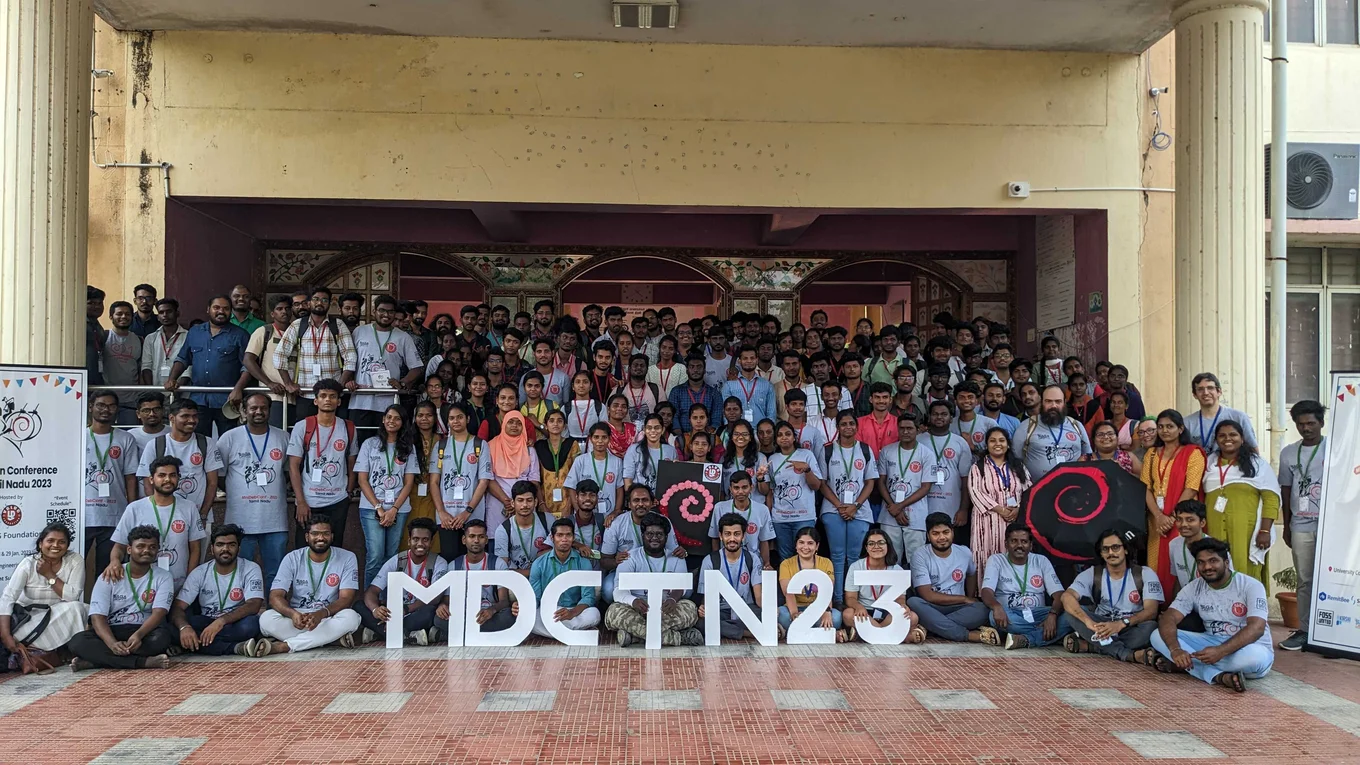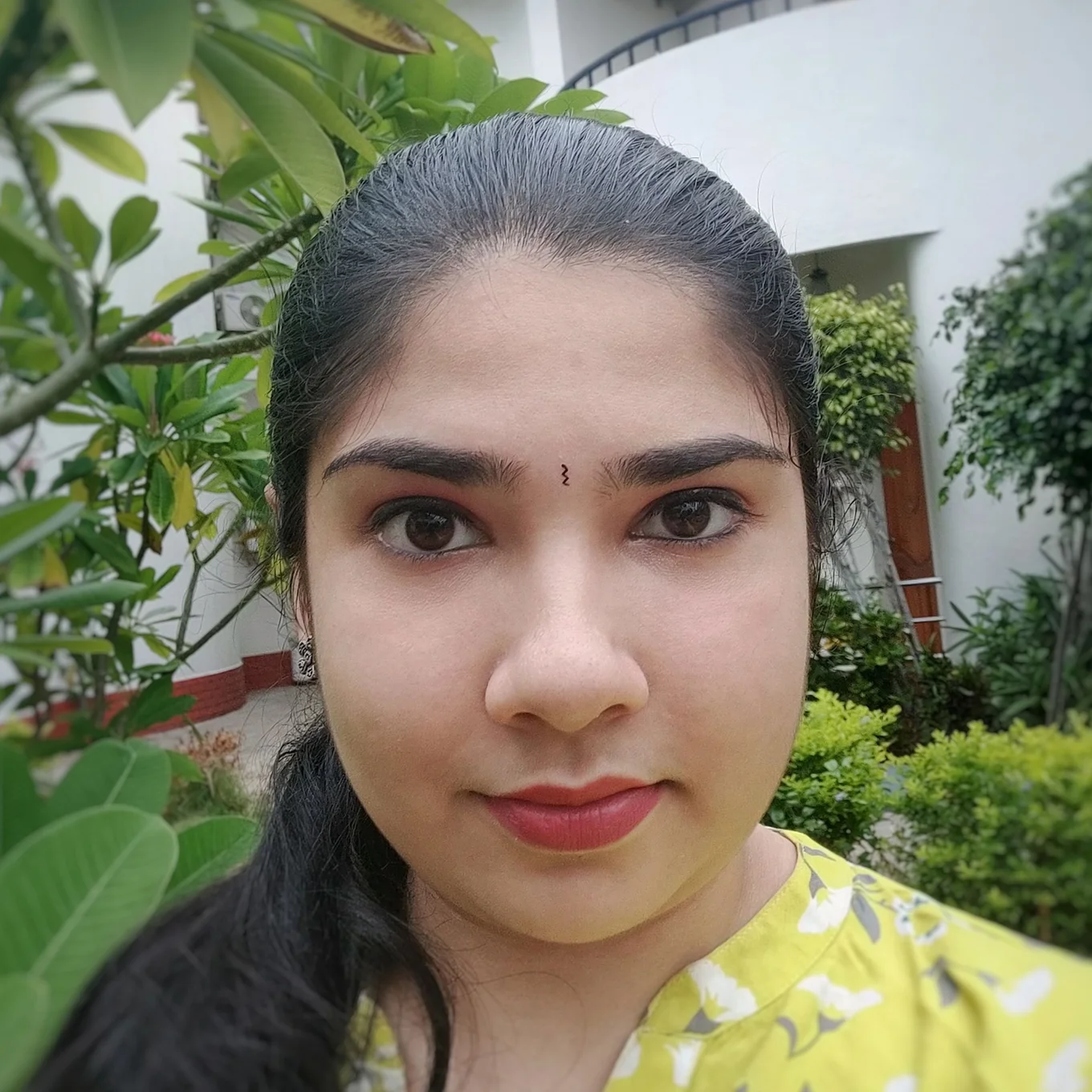
OCaml at MinidebConf TN 2023

Senior Software Engineer
MinidebConf TN 23 was organised by Debian Developers and Villupuram Linux Users Group (VGLUG) as a precursor to DebConf 23 in September at Kochi, India. I had an opportunity to attend and speak at MiniDebConf TN.
I presented two sessions, one built on our experiences of introducing a Code of Conduct to an open source community (slides here), and one called An Invitation to OCaml, aimed at people with no prior OCaml experience. I was pleased to see a lot of folks getting interested in learning OCaml.
Over the course of two days, I attended interesting sessions by speakers from across India and other parts of the world.
First Day
The conference was inaugurated by Dr. Ravikumar, a Member of Parliament (MP) from the Villupuram district. A tech-savvy politician who has presence in the fediverse, the MP emphasised the importance of adopting FOSS technologies by the government in his speech. He released the private beta of Prav, a privacy-focussed communication app.
The first session was "Introduction to Debian" by Sruthi Chandran, the first and only woman Debian Developer from India. It was interesting to see how the Debian community is comprised of a diverse set of people all across the world and is completely driven by volunteers. I learnt about the do-o-cratic model, where people doing the work make decisions.
A professor at RV College of Engineering and a FOSS enthusiast, Dr. Deepika's session on the KDE ecosystem was a great primer on motivating people to move to FOSS technologies. I found her suggestion to use the term Swatantra Software to indicate Free Software (Free as in Freedom) to be a great one. Then, Martha and Kelvin, mappers by profession, took us through the journey of OpenStreetMaps from a blank state to its growth of being at par with other maps. They did a quick session on how to contribute to it.
Later I presented a session on "Introducing a Code of Conduct" to an open-source community. This talk was built upon our experience of drafting and enforcing a Code of Conduct for the OCaml community, which led to completion in late 2022. This effort started earlier in the same year, with the idea of first forming a group of respected members in the community to act as the enforcement team. The effort was supported by the OCaml Software foundation. Once the team had enough strength, we worked on drafting a Code of Conduct document, largely inspired from existing texts, and iterating it over till it was accepted by the community.
The day ended with a speakers-only round table session of FOSSivist. It was a discussion with VGLUG volunteers on how to utilize Free and Open Source Software technologies to uplift the lives of underprivileged students in the district. For context, Villupuram falls in the bottom five in the literacy rate, both average and female literacy rate. VGLUG was formed by a group of volunteers actively working on identifying talented first-generation Villupuram learners and training them for a career in tech.
Second Day
The second day saw another lineup of interesting sessions. First was an introduction to contributing to Linux kernel by Nihal. This was followed by Gunnar Wolf's session on Debian authentication. It was evident Debian takes privacy seriously, and he urged the listeners to do so too. Bhuvana presented a session on why Diversity and Inclusion is important in tech.
This was followed by my presentation on An Invitation to OCaml. I talked about all the nice things OCaml offers, including the new and exciting features in OCaml 5 with Multicore support. The talk is aimed at folks who've been programming in other languages, but new to Functional Programming. We go over why FP, slowly moving on to talk about OCaml features like immutability, type inference, garbage collection, etc. We also briefly touch upon the new features in OCaml 5, namely native support for parallelism and concurrency. It was great to chat about functional programming with folks afterwards.
Renjith, an active Wikipedian, presented their story of moving a Malayalam daily newspaper called Janayugom to an entirely FOSS tech stack. This saved the company a lot of money and stopped Janayugom from shutting down. Renjith emphasised the importance of free speech in a democracy and how small maganizes and newspapers play a role in it. Then Subin presented Varnam, an Indic input tool.
I was impressed by the efforts taken by VGLUG volunteers and the Debian India team to organise everything in a smooth manner. From the time we landed in Villupuram, we did not worry about anything. Transport, food, and lodging were all taken care of by VGLUG volunteers. I did not think such a vibrant community of FOSS users would operate in a rural town. The community is doing great work to uplift the lives of people in their Villupuram.
Best of all, it was great to meet old friends and make new ones. I hope to spread the joy of OCaml in more places.
Open-Source Development
Tarides champions open-source development. We create and maintain key features of the OCaml language in collaboration with the OCaml community. To learn more about how you can support our open-source work, discover our page on GitHub.
Explore Commercial Opportunities
We are always happy to discuss commercial opportunities around OCaml. We provide core services, including training, tailor-made tools, and secure solutions. Tarides can help your teams realise their vision
Stay Updated on OCaml and MirageOS!
Subscribe to our mailing list to receive the latest news from Tarides.
By signing up, you agree to receive emails from Tarides. You can unsubscribe at any time.
